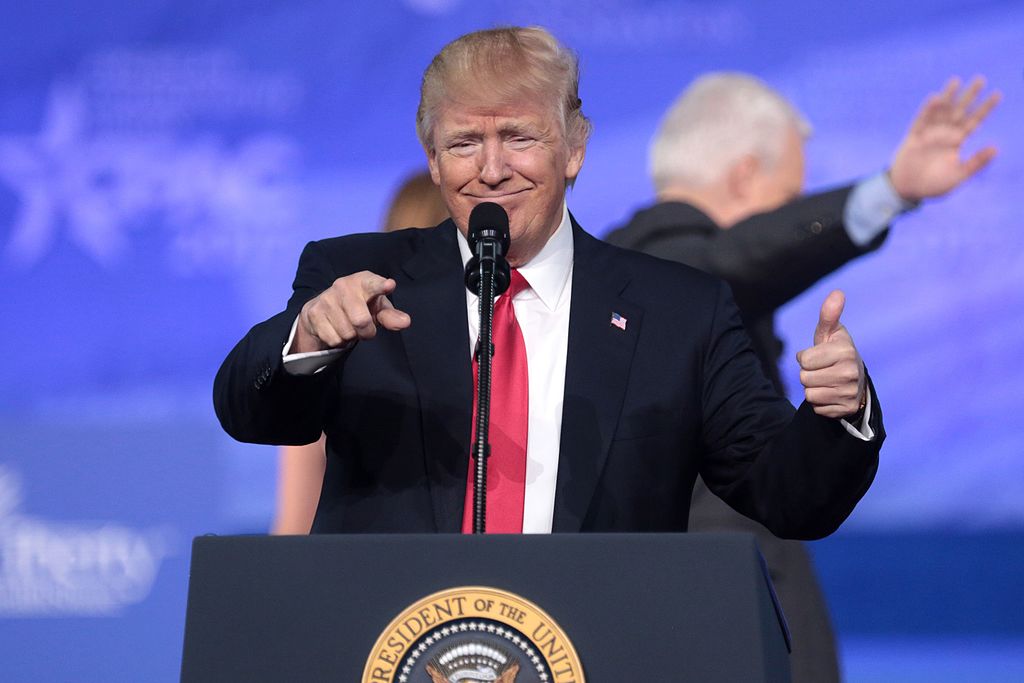A recent study published in the Journal of Marketing has sparked debate by claiming Republicans are more willing than Democrats to spread misinformation during times of political polarization. Researchers Xiajing Zhu and Connie Pechmann from the University of California, Irvine, suggest that Republicans’ desire to "win at all costs" often leads to sharing false or misleading information.
The study highlights how Republicans respond aggressively to heightened political competition, prioritizing their party’s dominance. Democrats, by contrast, place greater value on equity and inclusion, according to Zhu.
“Although Republicans may understand the content is likely false, they are willing to spread it because they strongly value their party winning,” Zhu explained.
Political Polarization Increases Propensity for Misinformation
The study, conducted through multiple surveys and data analysis, examined fact-checked statements, participant behavior, and presidential speeches dating back to 1929.
One key finding showed that during periods of high political polarization, Republicans were 21% more likely than Democrats to share misinformation. This gap narrowed to 9% during low-polarization periods.
Participants, categorized as either Democrat or Republican, were exposed to misinformation framed against their opposing party. Republicans showed a stronger inclination to share fake news, particularly during competitive political climates.
“Republicans react to political polarization by putting out partisan misinformation,” Pechmann said, emphasizing the damaging effects of such behavior on democratic processes.
The researchers also analyzed presidential speeches, finding that Republican presidents were more likely to use partisan language during polarized times. Terms like “we” and “us” often reflected an “ingroup” mentality aimed at securing dominance, Zhu and Pechmann noted.
The Impact of Misinformation on Democracy
The study highlighted the real-world consequences of misinformation, including its role in shaping public policy. Zhu and Pechmann referenced misinformation following the 2020 U.S. presidential election, which led to the introduction of 400 restrictive voting bills across 47 states. Fourteen states passed measures that reduced voter access, including shorter mail-in voting periods and limited ballot dropboxes.
“These changes have decreased voter turnout and engagement, particularly among minority voters,” the researchers warned.
To combat misinformation, the study advocates for increased investment in fact-checking and mandatory media literacy education. Despite 84% of U.S. adults supporting media literacy in schools, only 18 states currently require such programs.
“Polarization is rising globally,” the researchers concluded. “Our insights can help nations, communities, and individuals better prepare for the effects of misinformation and preserve trust in democracy.”
Netizens React to the Controversial Study
The findings ignited fierce debate online:
- @TruthTeller87: “This is why our democracy is in crisis—misinformation has become a political strategy.”
- @RedStateDefender: “More leftist propaganda! Democrats control the media and spread their own lies every day.”
- @BlueWave24: “Facts don’t care about your feelings, Republicans. Stop undermining democracy with fake news.”
- @NeutralObserver: “Interesting study, but both sides need to take responsibility for misinformation.”
- @LibertyForever: “Just another biased attack on conservatives. Where’s the study on left-wing misinformation?”
- @FactCheckHero: “We need better fact-checking and media literacy—this affects all of us, regardless of party.”
The Fight Against Misinformation
Zhu and Pechmann’s research underscores the need for systemic reforms to address misinformation. As polarization continues to grow, their work highlights the importance of fact-checking, media literacy, and fostering bipartisan cooperation.



 Israel Declares State of Emergency as Iran Launches Missile Attacks
Israel Declares State of Emergency as Iran Launches Missile Attacks  Israel Strikes Hezbollah Targets in Lebanon After Missile and Drone Attacks
Israel Strikes Hezbollah Targets in Lebanon After Missile and Drone Attacks  AI is already creeping into election campaigns. NZ’s rules aren’t ready
AI is already creeping into election campaigns. NZ’s rules aren’t ready  Marco Rubio to Brief Congress After U.S.-Israeli Strikes on Iran
Marco Rubio to Brief Congress After U.S.-Israeli Strikes on Iran  Trump Announces U.S. Strikes on Iran Navy as Conflict Escalates
Trump Announces U.S. Strikes on Iran Navy as Conflict Escalates  Iran Supreme Leader Ayatollah Ali Khamenei Killed in Israeli, U.S. Strikes: Reuters
Iran Supreme Leader Ayatollah Ali Khamenei Killed in Israeli, U.S. Strikes: Reuters  Australia Rules Out Military Involvement in Iran Conflict as Middle East Tensions Escalate
Australia Rules Out Military Involvement in Iran Conflict as Middle East Tensions Escalate  Argentina Tax Reform 2026: President Javier Milei Pushes Lower Taxes and Structural Changes
Argentina Tax Reform 2026: President Javier Milei Pushes Lower Taxes and Structural Changes  U.S.-Israel Strike on Iran Escalates Middle East Conflict, Trump Claims Khamenei Killed
U.S.-Israel Strike on Iran Escalates Middle East Conflict, Trump Claims Khamenei Killed  Pentagon Leaders Monitor U.S. Iran Operation from Mar-a-Lago
Pentagon Leaders Monitor U.S. Iran Operation from Mar-a-Lago  Does international law still matter? The strike on the girls’ school in Iran shows why we need it
Does international law still matter? The strike on the girls’ school in Iran shows why we need it  Israel Launches Fresh Strikes on Iran After Death of Supreme Leader Ayatollah Khamenei
Israel Launches Fresh Strikes on Iran After Death of Supreme Leader Ayatollah Khamenei  Trump Says U.S. Attacks on Iran Will Continue, Warns of More American Casualties
Trump Says U.S. Attacks on Iran Will Continue, Warns of More American Casualties  Macron Urges Emergency UN Security Council Meeting as US-Israel Strikes on Iran Escalate Middle East Tensions
Macron Urges Emergency UN Security Council Meeting as US-Israel Strikes on Iran Escalate Middle East Tensions  Suspected Drone Strike Hits RAF Akrotiri Base in Cyprus, Causing Limited Damage
Suspected Drone Strike Hits RAF Akrotiri Base in Cyprus, Causing Limited Damage  Middle East Conflict Escalates After Khamenei’s Death as U.S., Israel and Iran Exchange Strikes
Middle East Conflict Escalates After Khamenei’s Death as U.S., Israel and Iran Exchange Strikes  Failure of US-Iran talks was all-too predictable – but Trump could still have stuck with diplomacy over strikes
Failure of US-Iran talks was all-too predictable – but Trump could still have stuck with diplomacy over strikes 































